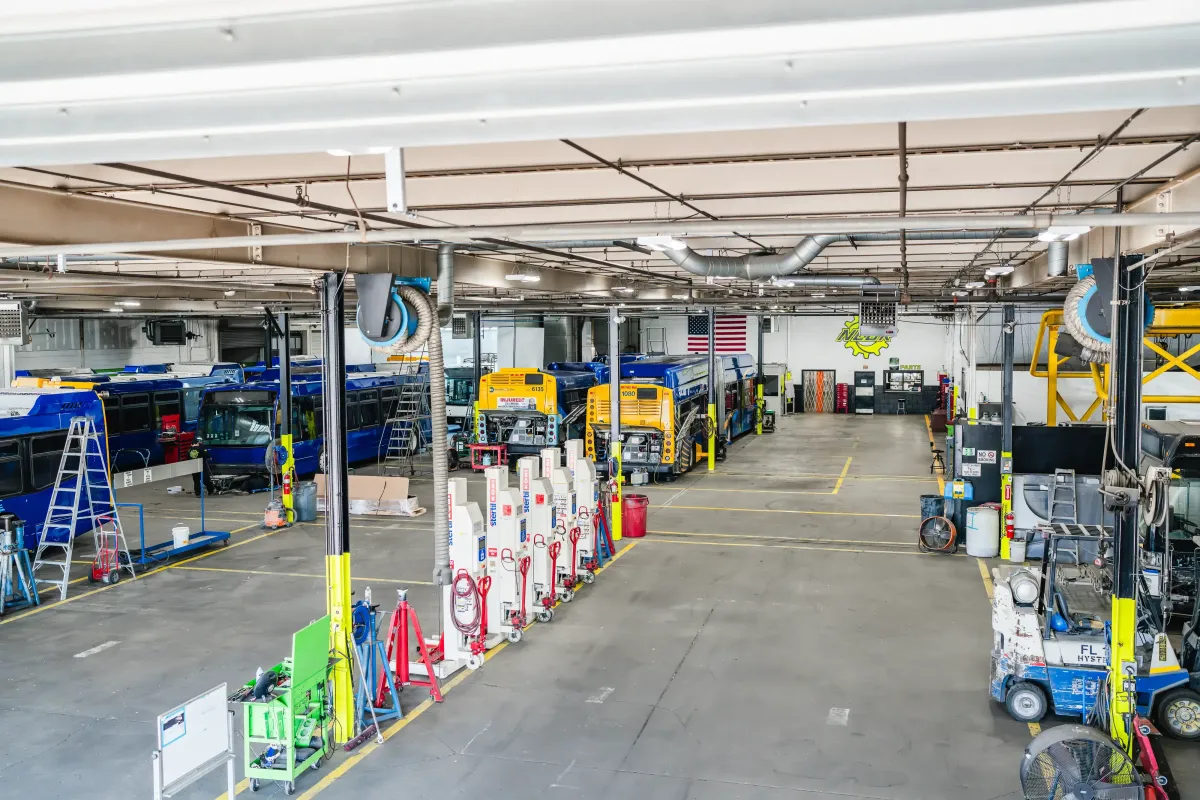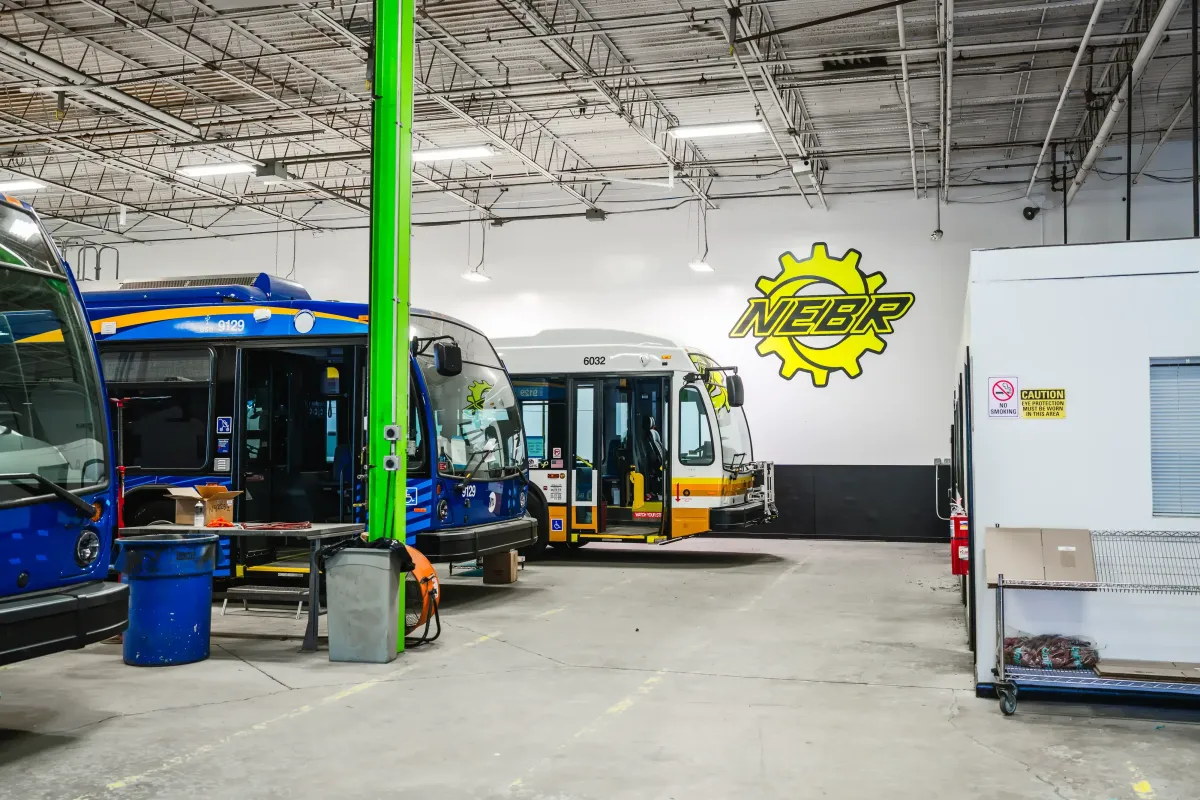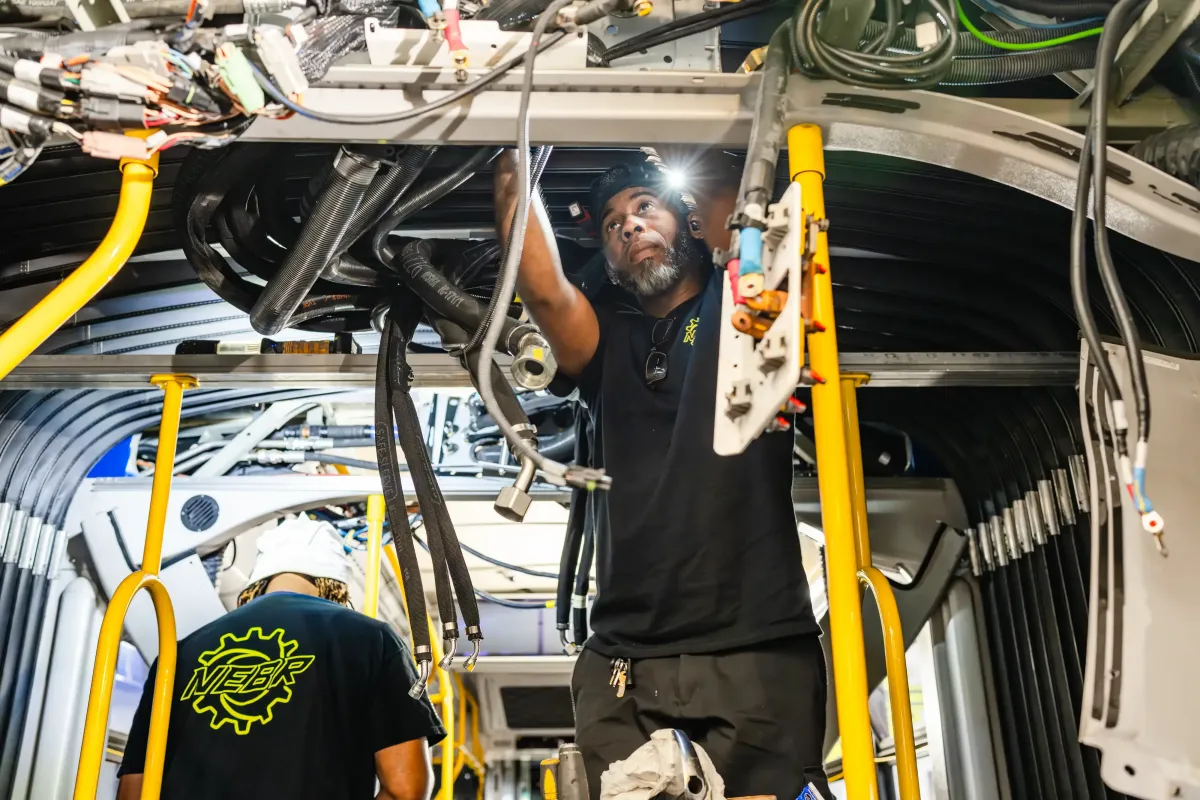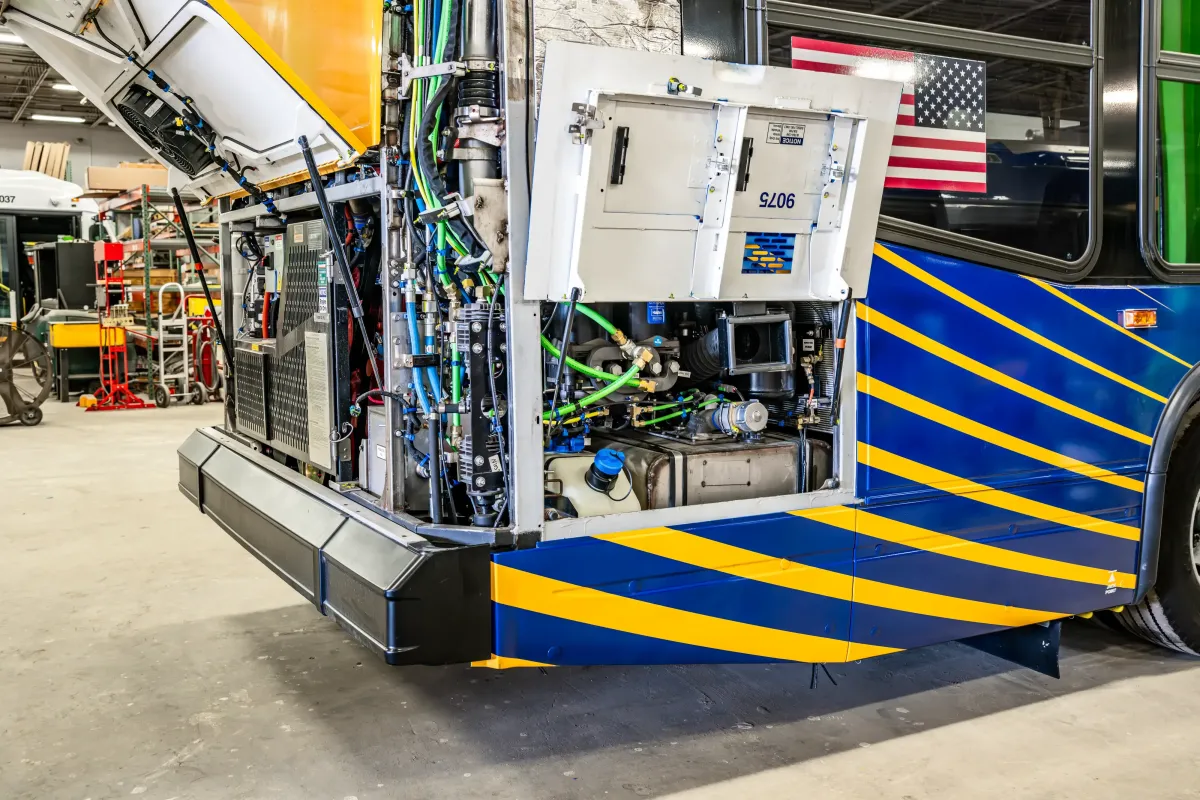Northeastern Bus Rebuilders (NEBR)
Driving the Future of Transit
Nationwide Leader in Hybrid and Electric Bus Delivery, Maintenance, and Fleet Modernization.
Northeastern Bus Rebuilders (NEBR) is the nation’s leading provider of comprehensive transit bus solutions — from new vehicle deliveries and warranty support to advanced hybrid and electric fleet maintenance. Recognized as an industry leader in reliability and innovation, NEBR keeps America’s transit systems moving safely and efficiently.
With service and support centers in New York, Boston, and Philadelphia, along with a nationwide field service network, NEBR manages every aspect of bus maintenance, fleet overhauls, and warranty administration. As the world’s first BAE Systems dealer, we specialize in next-generation propulsion technologies and sustainable fleet conversions that extend vehicle life and performance.
For over 30 years, NEBR has also been the trusted name in bus restoration and mid-life overhauls, delivering high-quality rebuilds and modernization programs that keep fleets on the road longer and performing like new.
Today, NEBR proudly supports transit agencies nationwide, providing coast-to-coast coverage and unmatched expertise in maintaining the most advanced hybrid and electric bus fleets in operation.
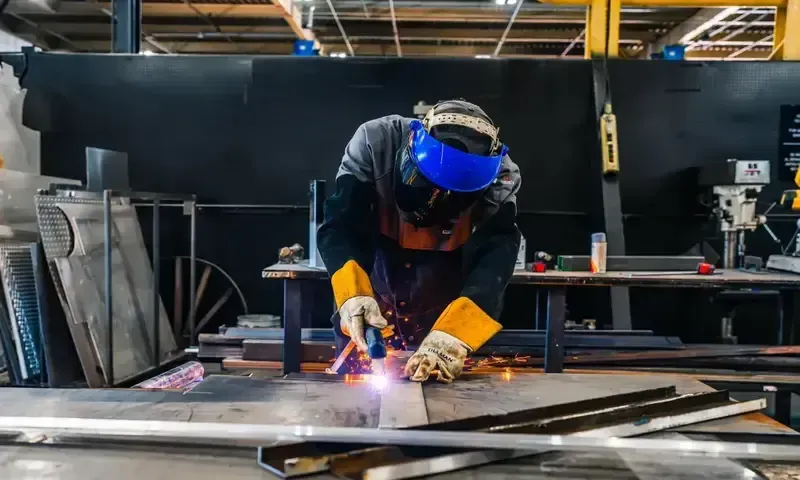
Join Our Team!
NEBR is committed to hiring talented professionals in the area. 401k & Health Insurance offered.
Mechanics
Welders
A/C Technicians
Electric/High Voltage Technicians
Paint & Body
Providing Fleet Maintenance & Bus Restoration & Repair of Transit Coaches
We are the exclusive dealer in the US for BAE Systems and the World leader in the service of Hybrid Electric Motors.
Comprehensive Fleet Maintenance Solutions
We are the leading provider of fleet maintenance services designed to keep your fleet in optimal working order for over 25 years. Our comprehensive solutions are tailored to meet the unique needs of fleets of all sizes, ensuring your vehicles are always ready to perform at their best. Whether you manage a small bus service or a large fleet of commercial vehicles, our expert team is here to help you achieve cost savings, enhance vehicle reliability, and streamline your maintenance processes.
Key Benefits of Our Fleet Maintenance Program
Cost Savings and Reduced Operating Costs
One of the primary advantages of our fleet maintenance services is the significant cost savings you’ll experience. By implementing a robust fleet maintenance program, we help you reduce repair costs and minimize operating costs. Our preventative maintenance approach ensures that potential issues are identified and addressed before they escalate into costly repairs, saving you time and money in the long run.
Improved Vehicle Reliability and Performance
Regular maintenance is crucial for keeping your fleet vehicles in peak condition. Our fleet maintenance management services include detailed maintenance history tracking, ensuring that each vehicle receives timely and appropriate care. This not only extends the lifespan of your fleet vehicles but also enhances their performance, reducing downtime and improving overall efficiency.
Expert Maintenance and Repair Services
At Northeastern Bus Rebuilders (NEBR), we offer a full range of vehicle maintenance and repair services. From routine inspections to complex repairs, our skilled technicians have the expertise to handle all your fleet maintenance needs. We use advanced diagnostic tools and high-quality parts to ensure that your vehicles are always in top working order.
Efficient Inventory Management
Our fleet maintenance program includes efficient inventory management, ensuring that all necessary parts and supplies are readily available when needed. This reduces delays and keeps your maintenance processes running smoothly, allowing you to focus on your core business operations.
Why Choose NEBR?
Tailored Solutions for All Fleet Sizes
NEBR (Northeastern Bus Rebuilders) is nationally recognized as a leader in transit bus maintenance, specializing in mid-life overhauls and alternative fuel systems as an authorized factory representative for the major bus manufacturers since 1995. We understand that every fleet is different. That’s why we offer customized maintenance solutions that cater to the specific requirements of your fleet, regardless of its size. Whether you operate a small bus service or manage a large fleet of commercial vehicles, we have the expertise and resources to support your maintenance needs.
Proactive Preventative Maintenance
Preventative maintenance is the cornerstone of our fleet maintenance services. By conducting regular maintenance and thorough inspections, we identify and address potential issues before they become major problems. This proactive approach not only enhances the reliability of your fleet but also helps you avoid unexpected repair costs.
Dedicated Support and Customer Service
Our commitment to customer satisfaction sets us apart from the competition. We provide dedicated support and personalized service to ensure that your fleet maintenance needs are met promptly and efficiently. Our team is always available to answer your questions, provide expert advice, and assist you with any maintenance and repair concerns.
See NEBR at Work
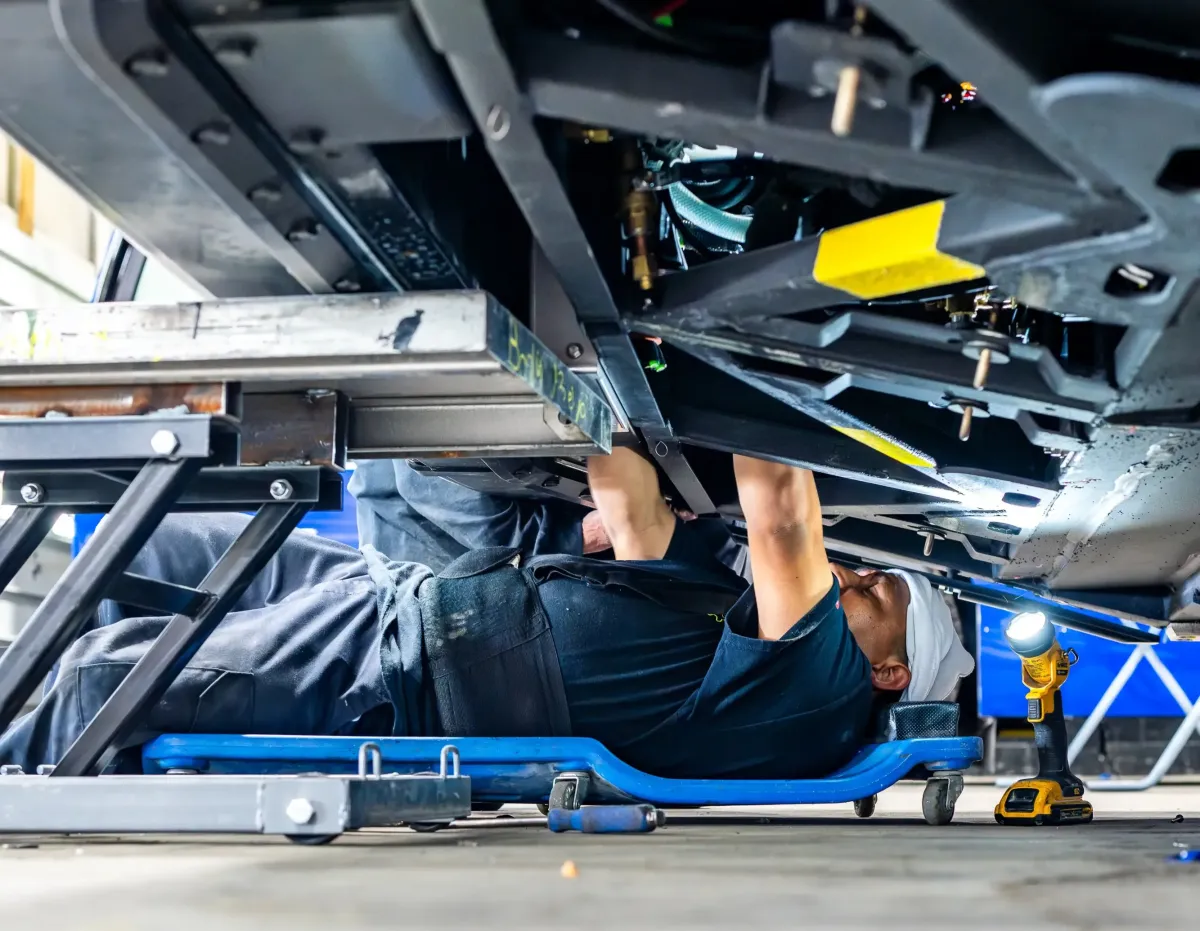
Contact Us
Specializing in bus remanufacturing, NEBR performs all types of high-quality services. NEBR is certified to work on all of Five Major Transit Bus manufacturers and Sub-component providers: Including but not limited too; New Flyer Industries, Daimler AG, Nova Bus, Gillig and Proterra.
3025 Veterans Highway Ronkonkoma, NY 11779
Main Office: +1-631-940-1905
©2025 Northeastern Bus Rebuilders Inc. All rights reserved.
Powered By: WebElites



